 Suriname is a country of order, contrast and friendly people. Arriving on the ferry from French Guiana presented us with our first taste of the Dutch-speaking people of Suriname. Fortunately, most people also speak English so we were able to communicate.
Suriname is a country of order, contrast and friendly people. Arriving on the ferry from French Guiana presented us with our first taste of the Dutch-speaking people of Suriname. Fortunately, most people also speak English so we were able to communicate. 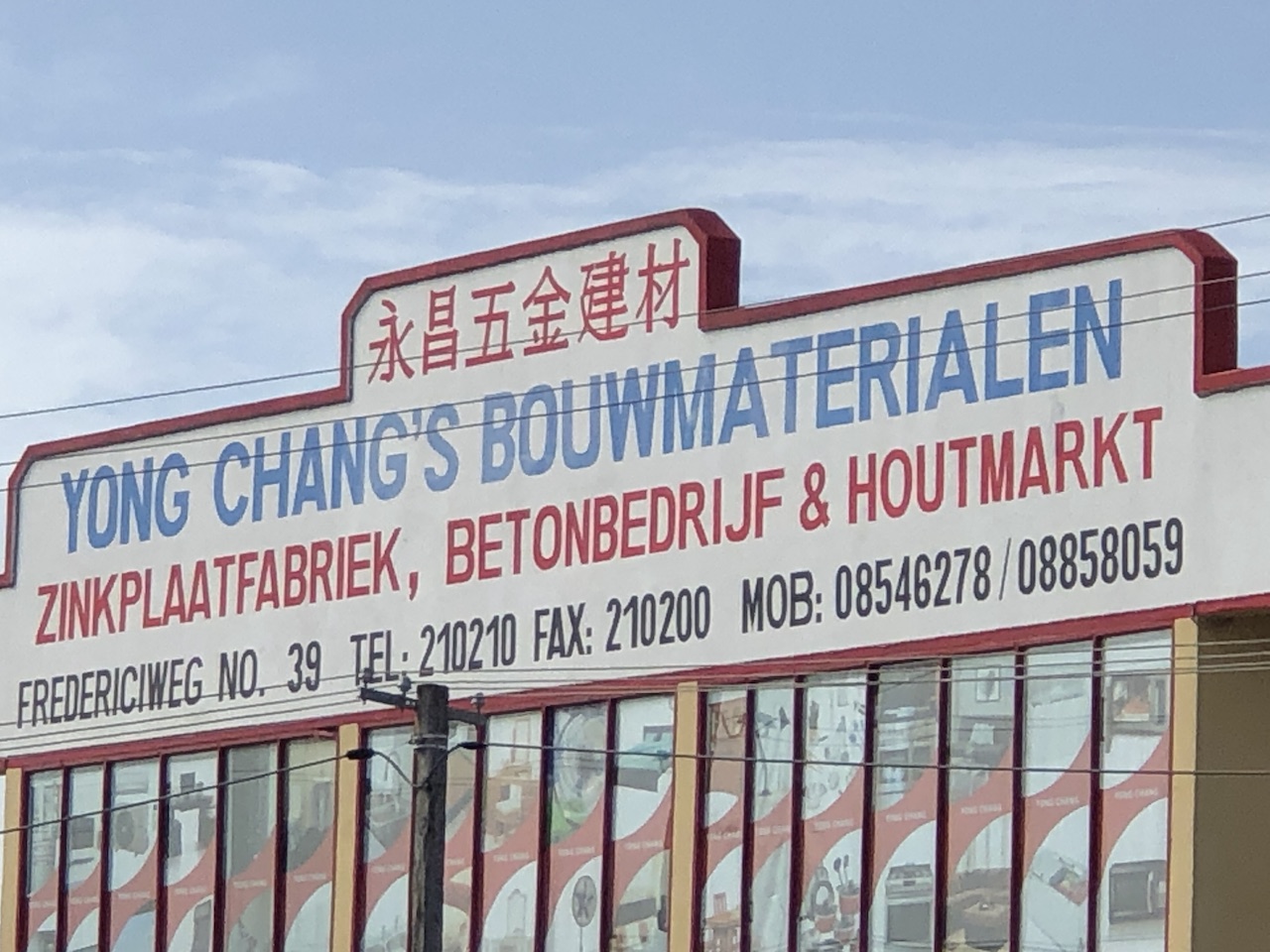 We quickly found a beautiful, grassy campsite with a gorgeous sunset view. The mosquitoes chased us back inside the camper after we tried to eat al-fresco at the ocean. And a large, sacred, cow woke us up in the night, using our truck as a scratching post. It felt like an earthquake again!
We quickly found a beautiful, grassy campsite with a gorgeous sunset view. The mosquitoes chased us back inside the camper after we tried to eat al-fresco at the ocean. And a large, sacred, cow woke us up in the night, using our truck as a scratching post. It felt like an earthquake again!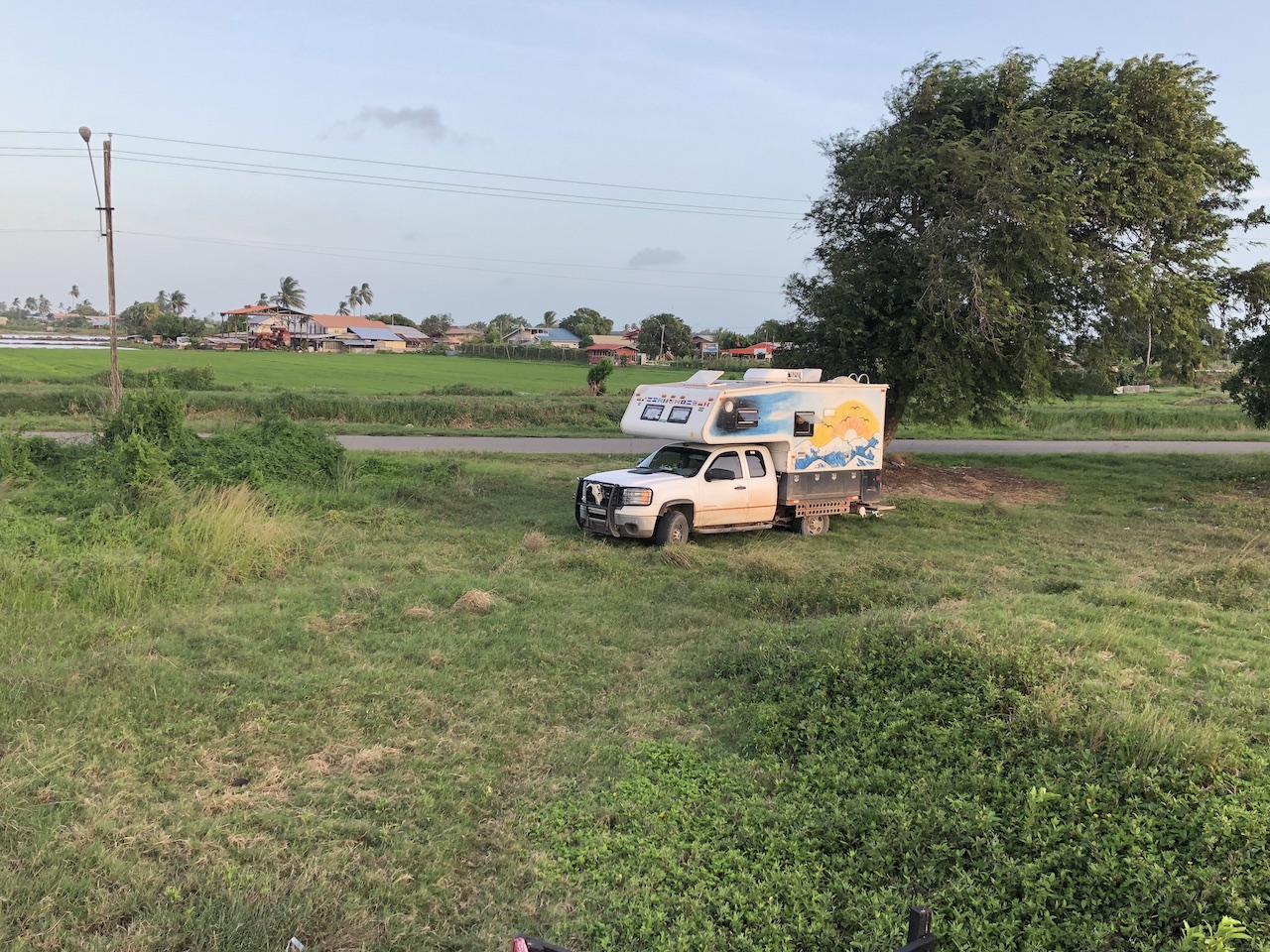
 I mention the sacred cow, because it is worthy of noting that Suriname is a predominately Hindu country. Traces of the Hindu beliefs can be seen in offices, stores, yards and at temples throughout the country. We visited one elaborate temple and spent a night camped among the statues.
I mention the sacred cow, because it is worthy of noting that Suriname is a predominately Hindu country. Traces of the Hindu beliefs can be seen in offices, stores, yards and at temples throughout the country. We visited one elaborate temple and spent a night camped among the statues.  The temple gates feature a beautiful Hindu goddess in her bare feet.
The temple gates feature a beautiful Hindu goddess in her bare feet. 
Shoes are not allowed inside the sacred temple area. Note the sign is written in Dutch. But bare feet on the cool, clean, tile floors were a welcome relief in the stifling heat and humidity of this oceanside location. The ocean breezes sweeping through the statues and altars added to the sense of cooling comfort in the temple.


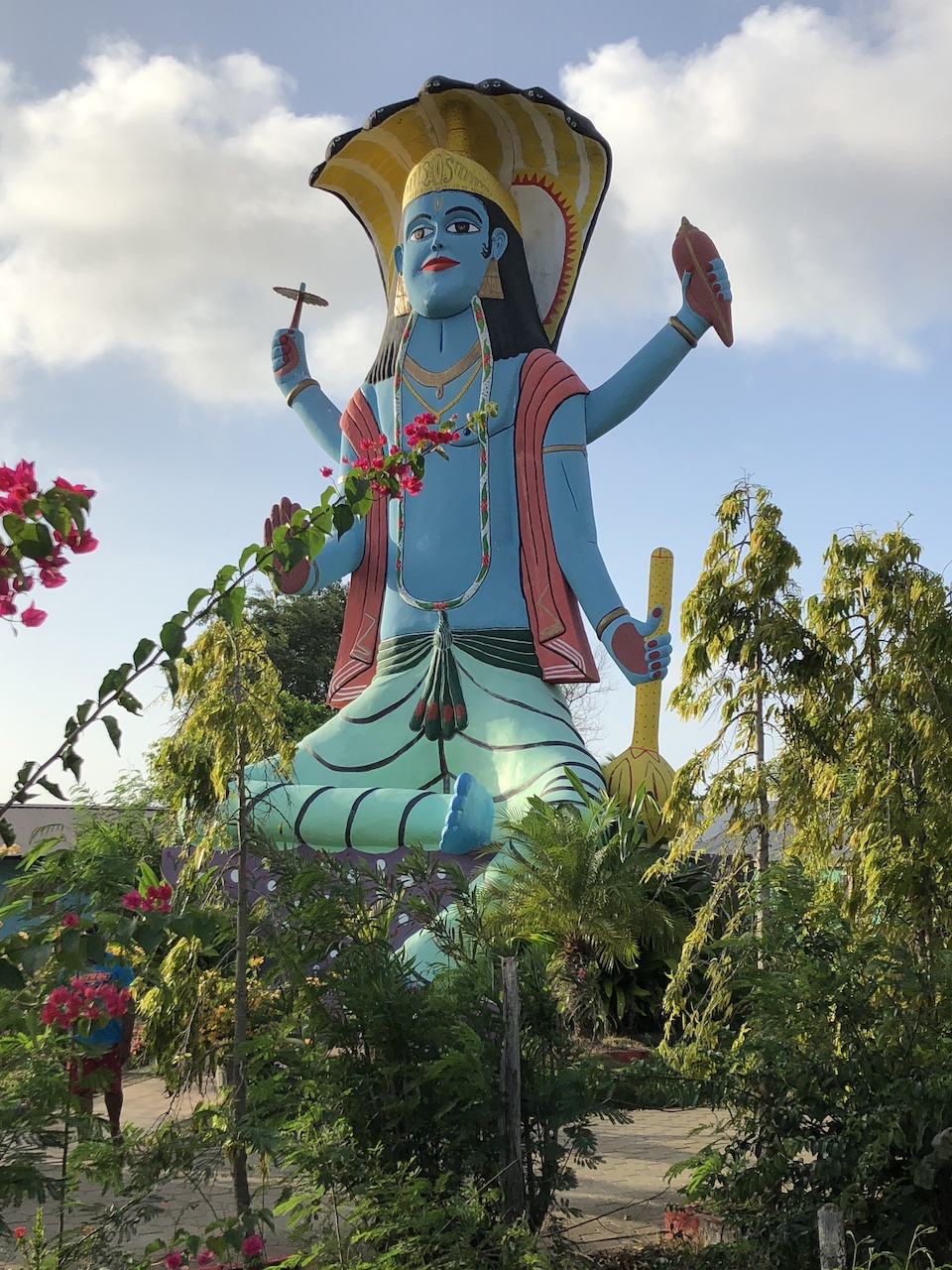
But lest you worry that we are being too serious, I will soften things up with a bit of humor in the city. These are a couple of things that made us laugh.




Do you know the capital of the country of Suriname? It is Paramaribo. This city is a very orderly, Dutch. White buildings, narrow, one-way streets, flags and tidy sidewalks comprise the business center of this country. 
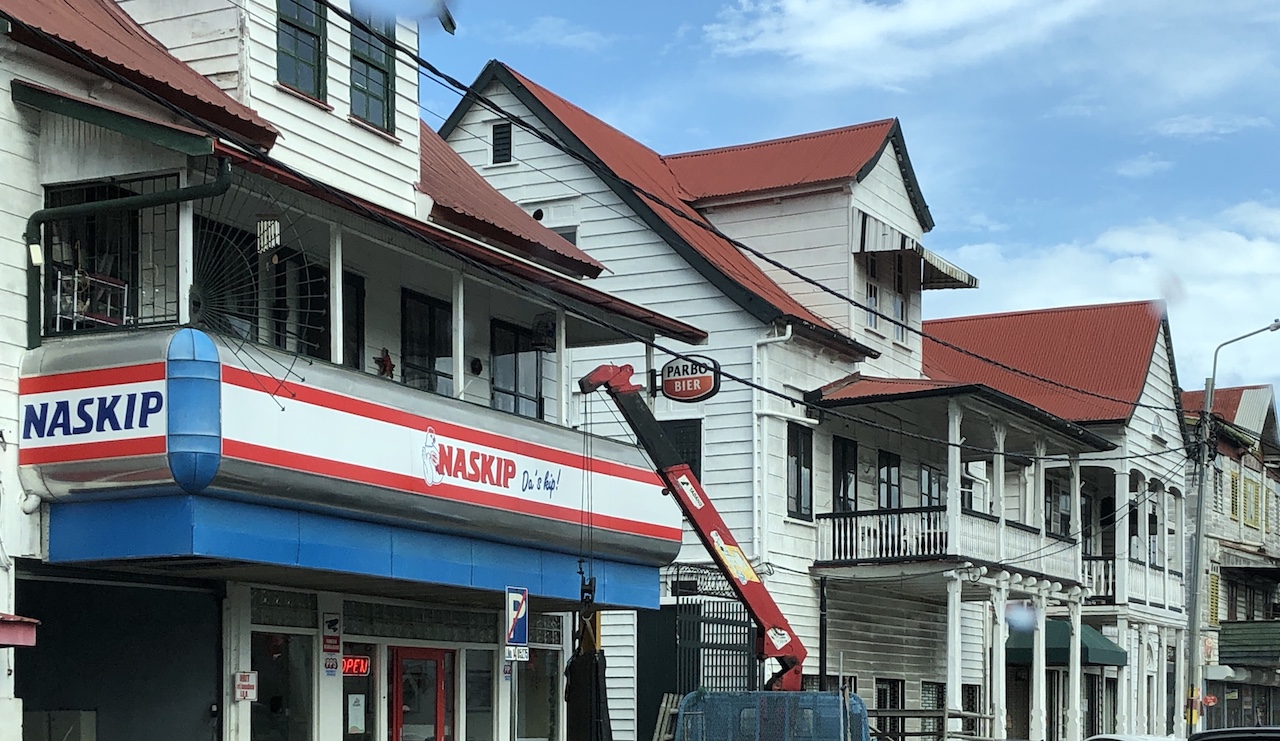
 We spent a couple of nights parked in the center of town on the waterfront in a city park. There we met a drunk, homeless man that calls himself Rembrant of Suriname (yes, that’s how he spelled it). We chatted for a while, and then informed us that we would be buying a custom painting from him. He walked away and returned an hour later with a painting for us. In exchange for about $20.00 US dollars we received a custom, personalized, signed and dated painting from Rembrant of Suriname. And a memory to take with us.
We spent a couple of nights parked in the center of town on the waterfront in a city park. There we met a drunk, homeless man that calls himself Rembrant of Suriname (yes, that’s how he spelled it). We chatted for a while, and then informed us that we would be buying a custom painting from him. He walked away and returned an hour later with a painting for us. In exchange for about $20.00 US dollars we received a custom, personalized, signed and dated painting from Rembrant of Suriname. And a memory to take with us.

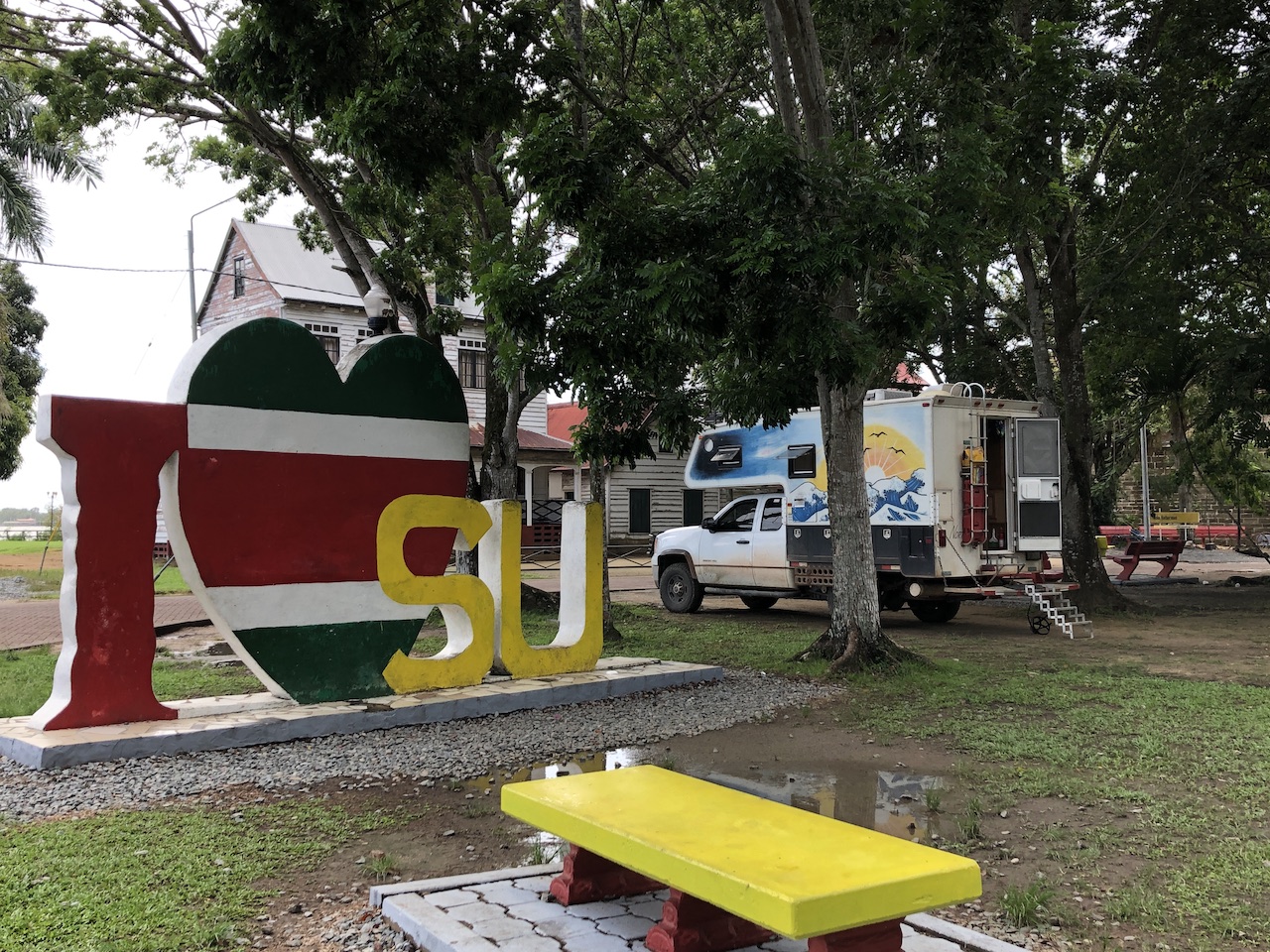
While we were in the city we paused to experience the special tonic that a smiling young woman was selling. Each bottle of tonic is made in a recycled glass bottle which has been stuffed with a special wood bark, cinnamon sticks, spices, seeds and unknown leaves. Then a harsh, strong alcohol is added and the whole mess is left to ferment in the heat. 
 When the customer is ready to take a drink of this powerful tonic, the young lady adds some cheap rum, a shot of Campari bitters and a bit of raw honey. Then the customer throws back the small, plastic cup and tries to swallow the whole mess in one gulp.
When the customer is ready to take a drink of this powerful tonic, the young lady adds some cheap rum, a shot of Campari bitters and a bit of raw honey. Then the customer throws back the small, plastic cup and tries to swallow the whole mess in one gulp. 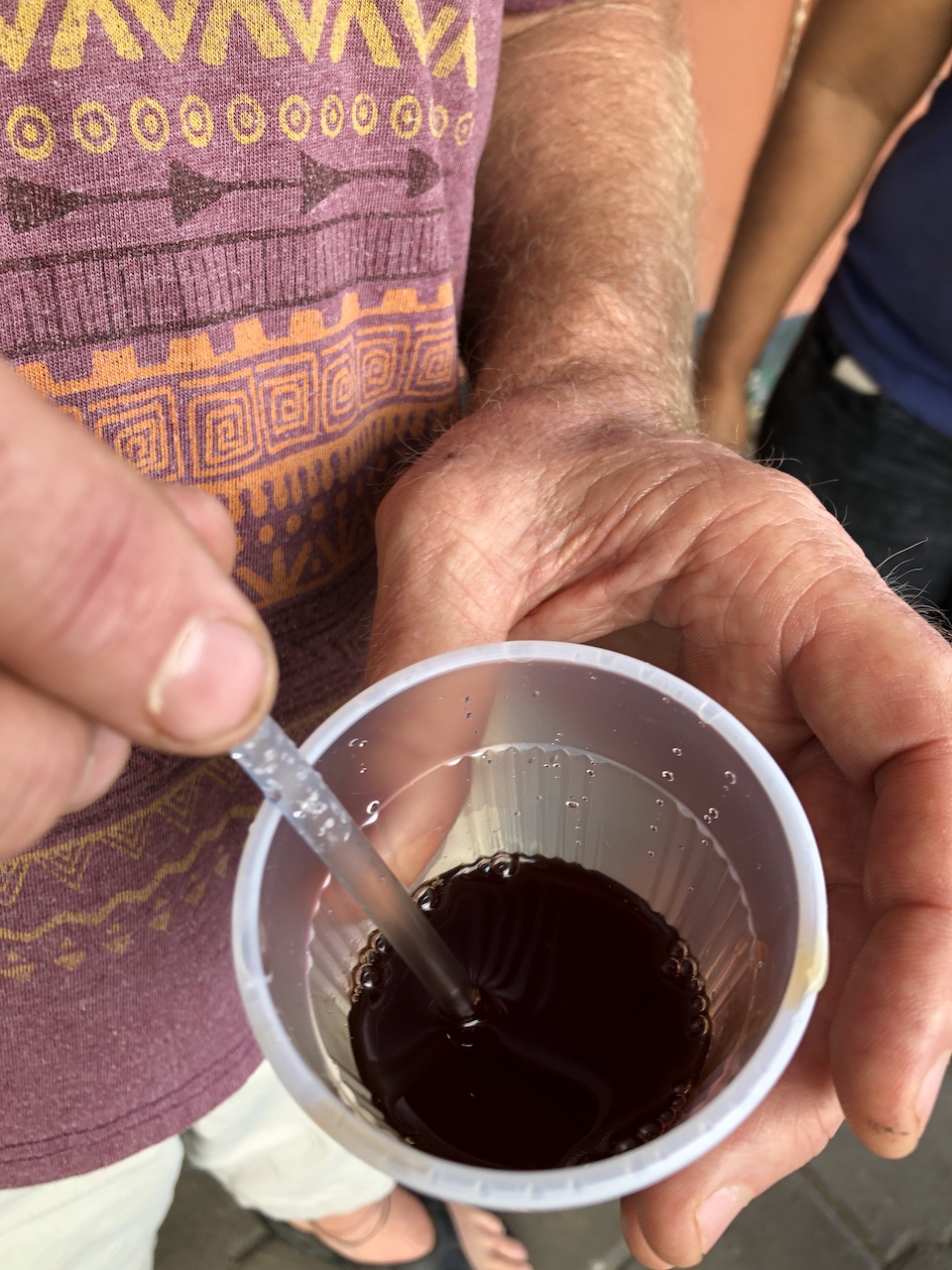
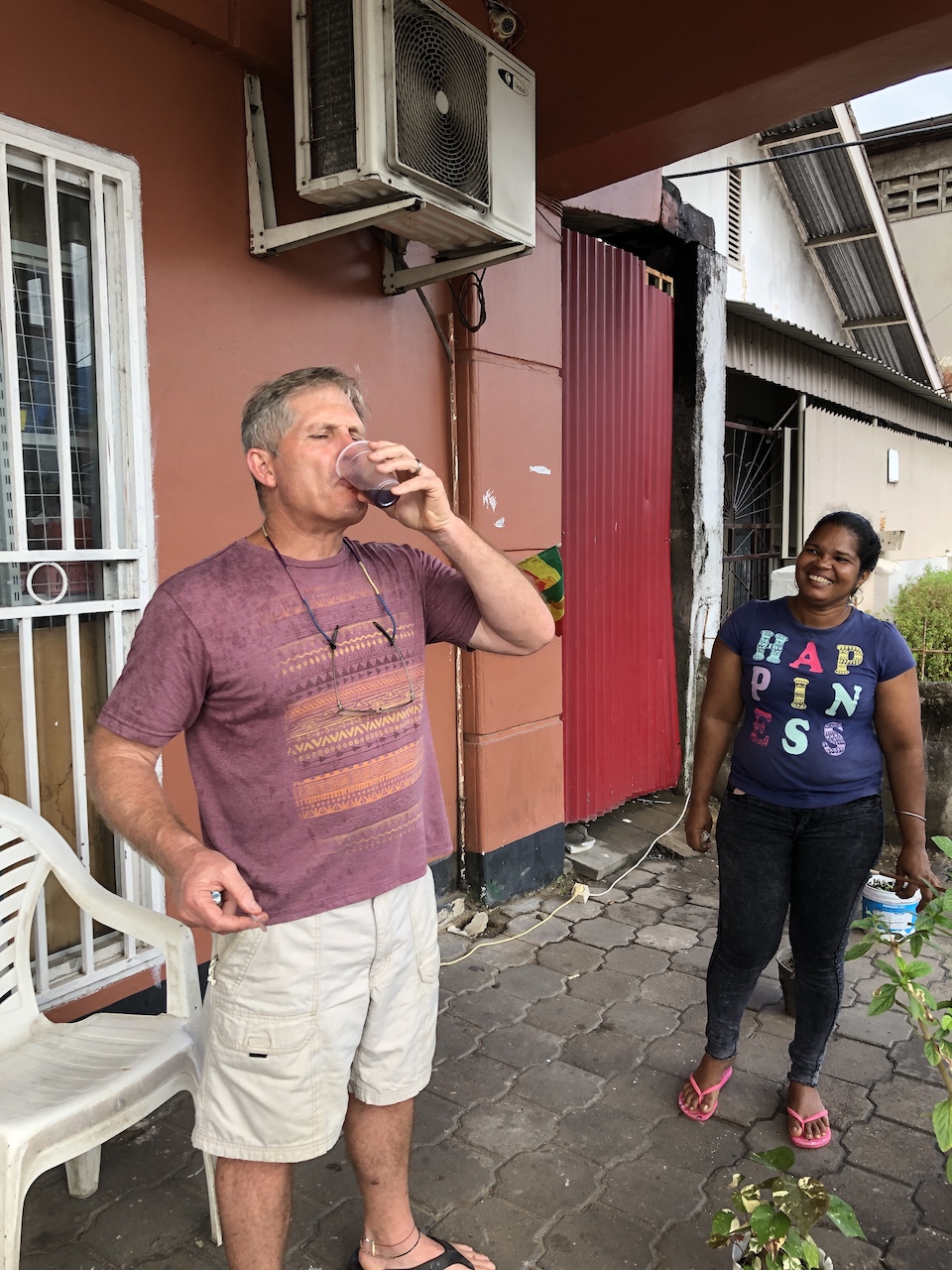
After a few days in the big city, we drove down some dirt roads to explore a small section of the interior Suriname. (much of the country is inaccessible by automobile) We camped at a hydroelectric dam that has created a large lake in the center of the country. There is a small village there that uses the water for their personal needs along the shoreline. We were able to camp on a hill above the lakeshore near the dam.


Driving partway into the interior of Suriname showed us another aspect of this country. We saw cute little Dutch style churches in the backcountry villages, we spotted a beautiful and rare wild mushroom, we saw huge logs harvested from the jungle and we experienced a very thick, healthy forest growing in the sticky, red soil. 
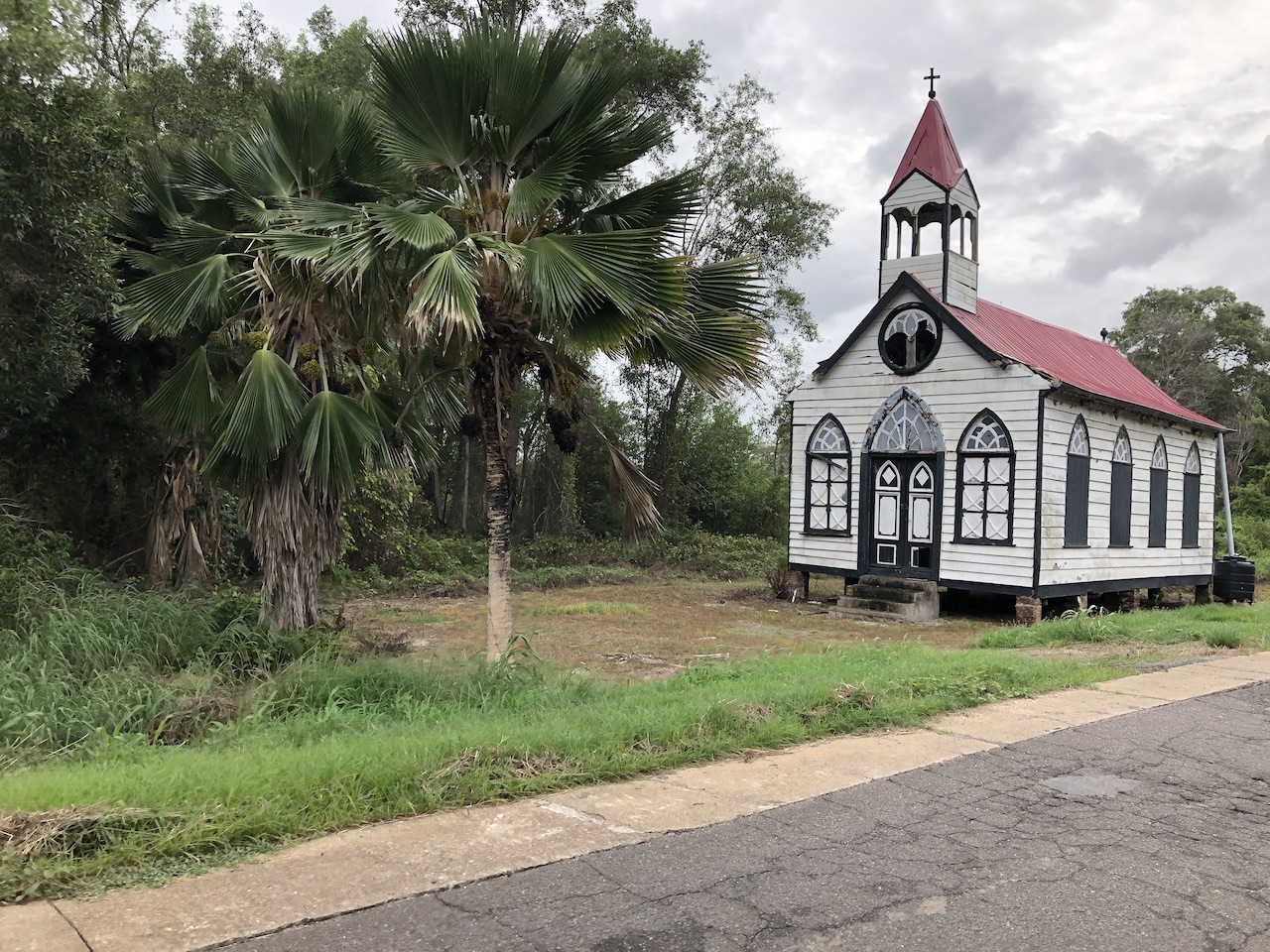

 One afternoon we came upon a memorial to a tragic airplane crash. Due to the size of the plane and the limited resources in this little country, they opted to dig a hole in the sand and bury the crashed fuselage right there. As we walked around we saw pieces of exposed metal, and a large hole leading into the body of the plane. It was a little eerie to see this memorial site.
One afternoon we came upon a memorial to a tragic airplane crash. Due to the size of the plane and the limited resources in this little country, they opted to dig a hole in the sand and bury the crashed fuselage right there. As we walked around we saw pieces of exposed metal, and a large hole leading into the body of the plane. It was a little eerie to see this memorial site. 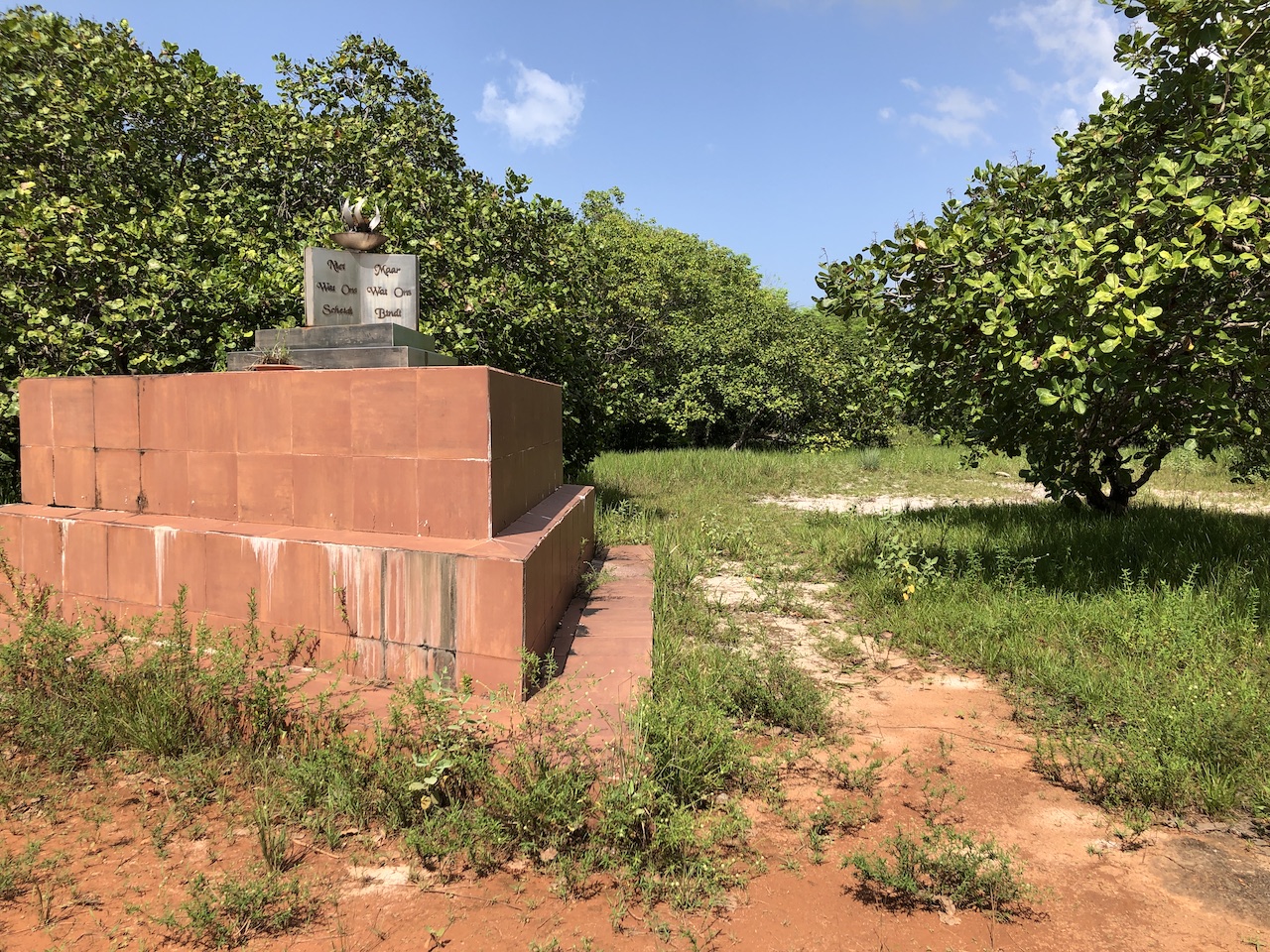

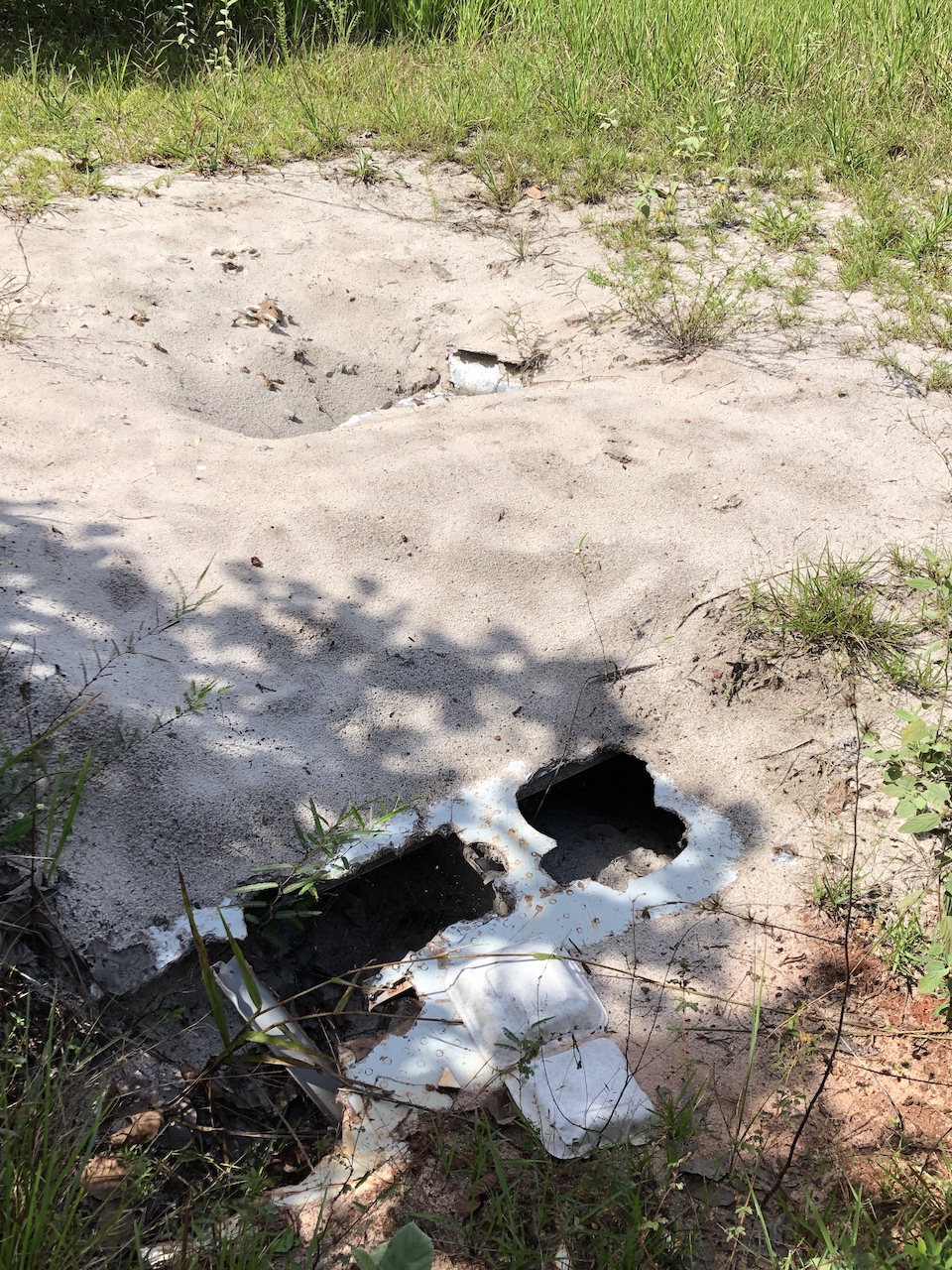
We also explored the unique site of a Jewish settlement, once the largest enclave of Jewish persons in all of South America. There was some great history here, and we were thrilled to see signs in English for our comprehension and to share with you. 
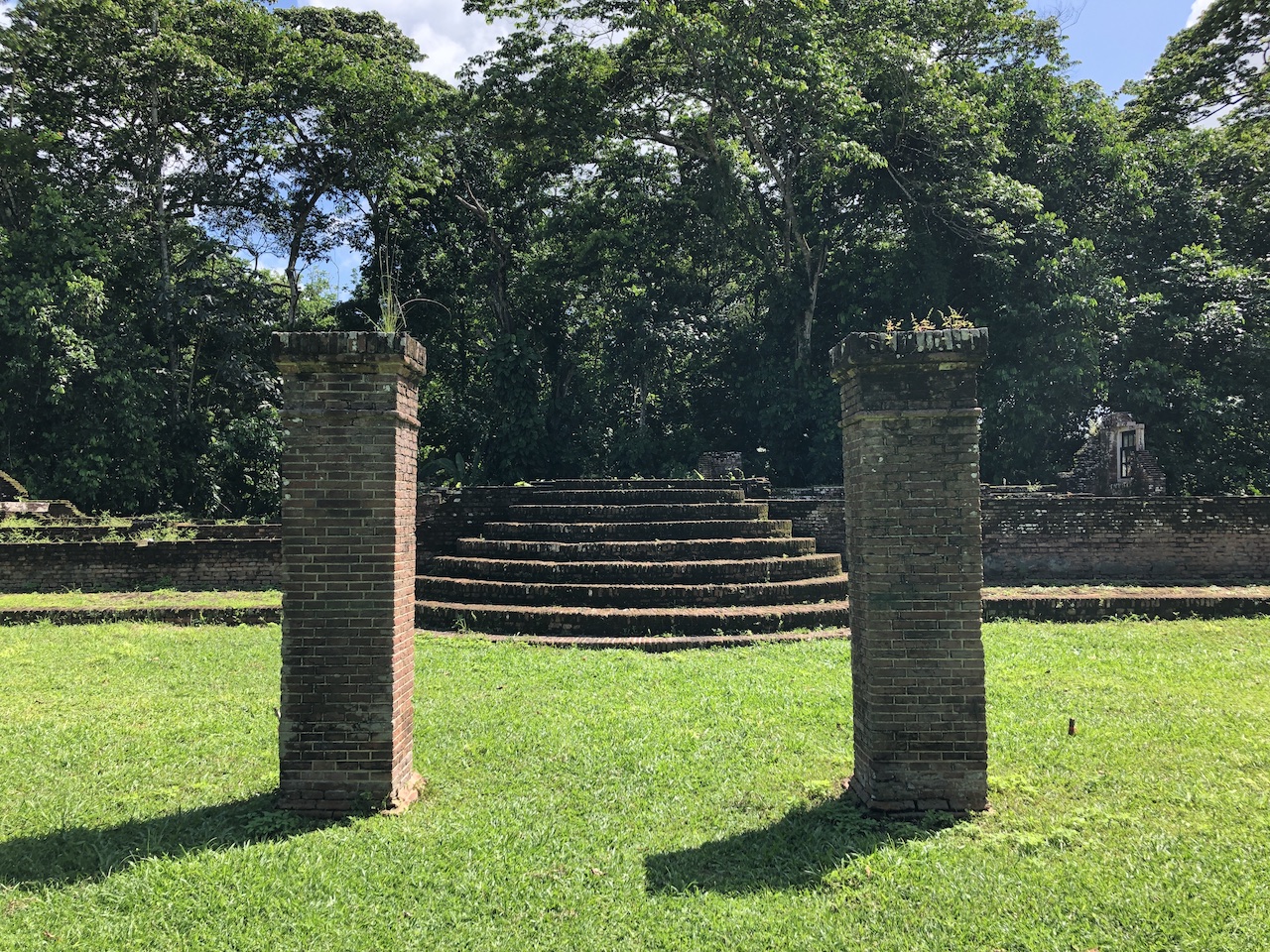

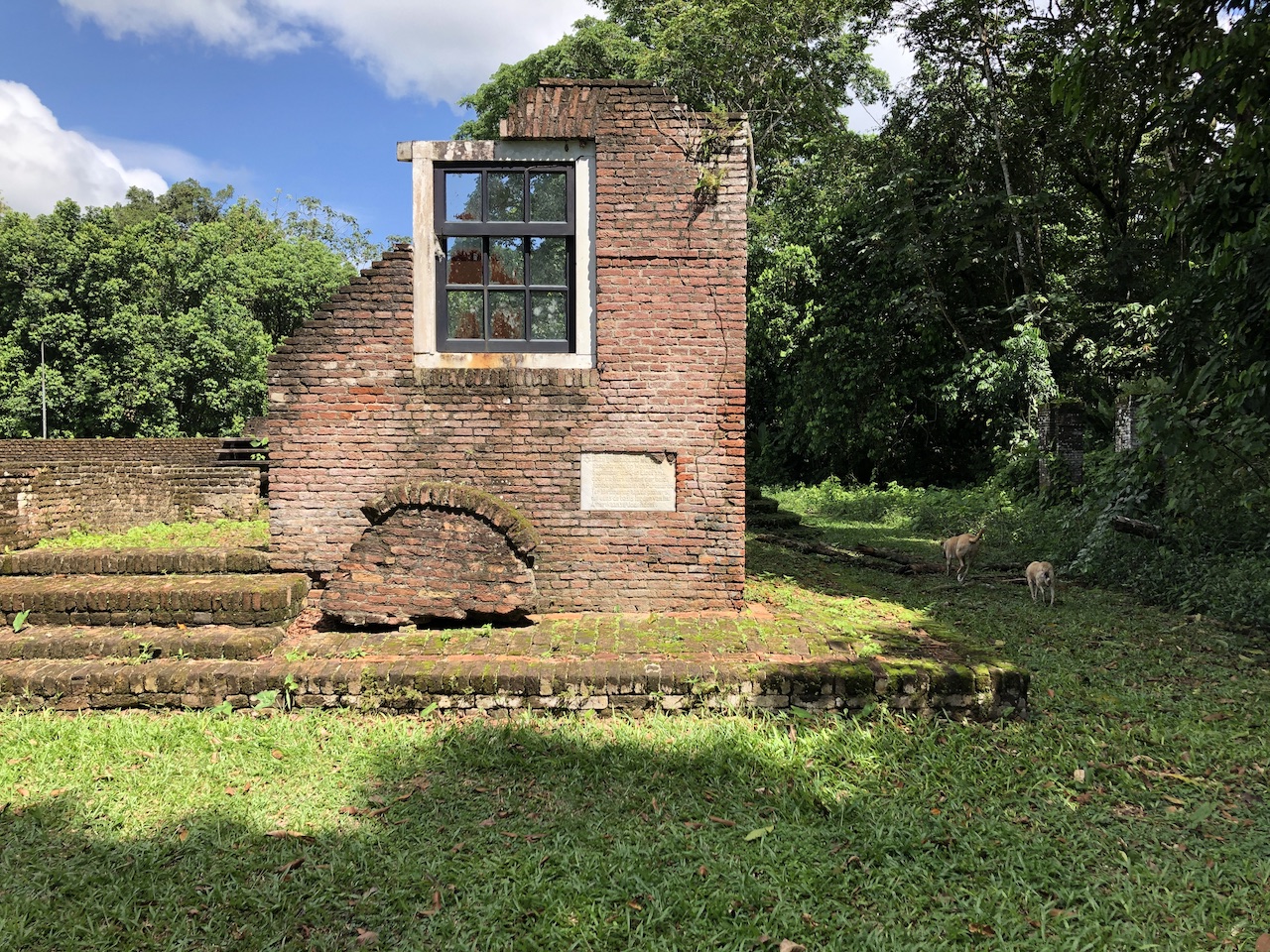 Particularly startling was the information about the later use of this settlement. Long after the Jewish families had moved on, the buildings were used to house members of the Dutch Nazi Party. No less than an ironic repurposing of a historical site.
Particularly startling was the information about the later use of this settlement. Long after the Jewish families had moved on, the buildings were used to house members of the Dutch Nazi Party. No less than an ironic repurposing of a historical site. 
Many of the gravestones that are mentioned above are still visible today. The cemetery holds a glimpse into the lifestyle, hardships and religious practices of the Jews that lived here in the early 1800’s. 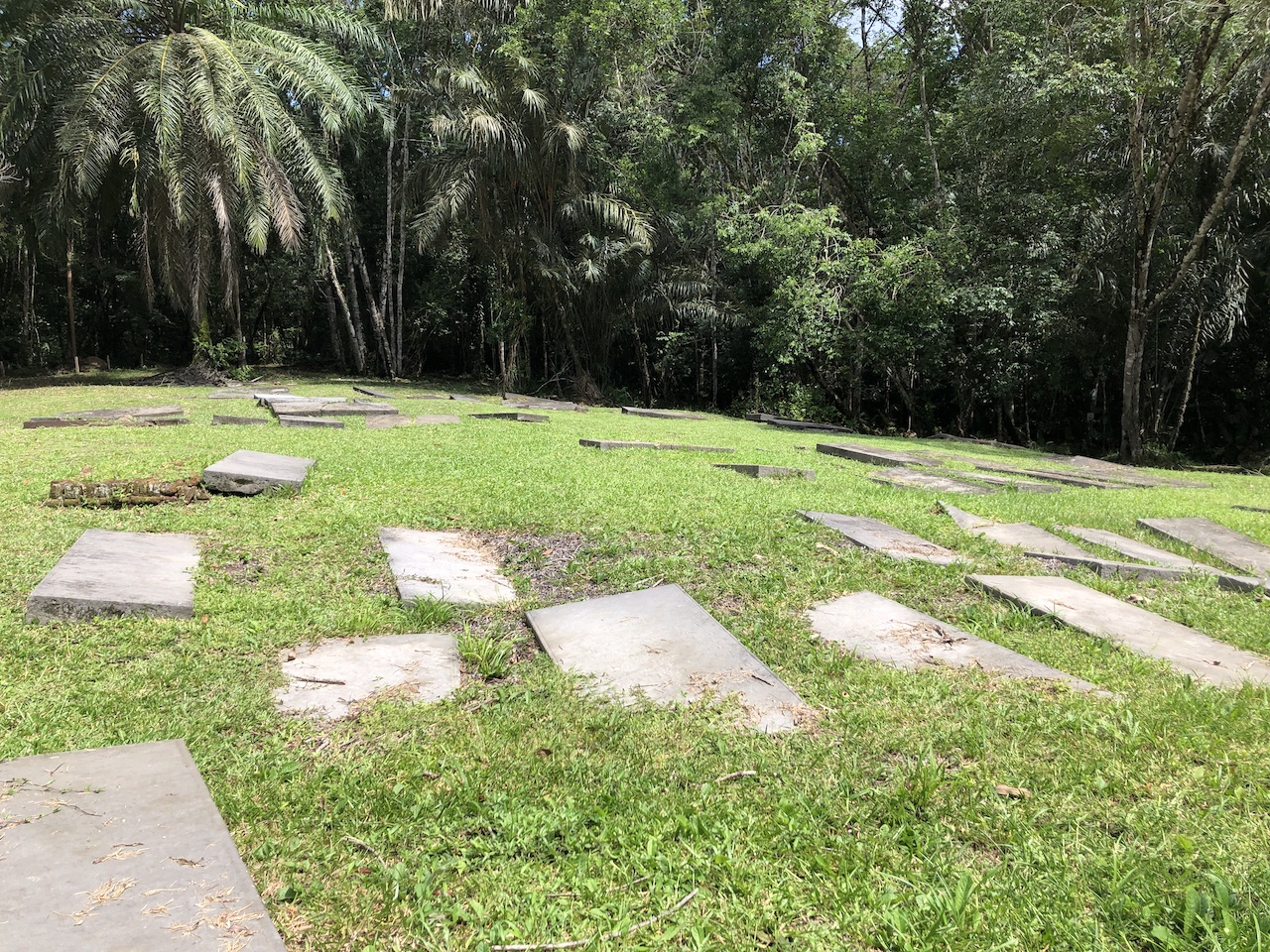



 The hike back into this riverside ruin and historical site is hot and exhausting. Nica became so tired on the hike back to the truck that she allowed Mike to carry her across his shoulders. Pacha ran crazily in and out of the think jungle chasing lizards, birds and the ghosts of the past!
The hike back into this riverside ruin and historical site is hot and exhausting. Nica became so tired on the hike back to the truck that she allowed Mike to carry her across his shoulders. Pacha ran crazily in and out of the think jungle chasing lizards, birds and the ghosts of the past! We were in Suriname for Christmas and for New Years. We chose to settle in to a small, private marina camping area to avoid the crowds and hassles of these holidays. At this location we had wifi, a small restaurant, a swimming pool and many other travelers passing through. While overlanding is travel on land, the marina guests are typically boaters who have stopped here for a rest and refuel.
We were in Suriname for Christmas and for New Years. We chose to settle in to a small, private marina camping area to avoid the crowds and hassles of these holidays. At this location we had wifi, a small restaurant, a swimming pool and many other travelers passing through. While overlanding is travel on land, the marina guests are typically boaters who have stopped here for a rest and refuel.

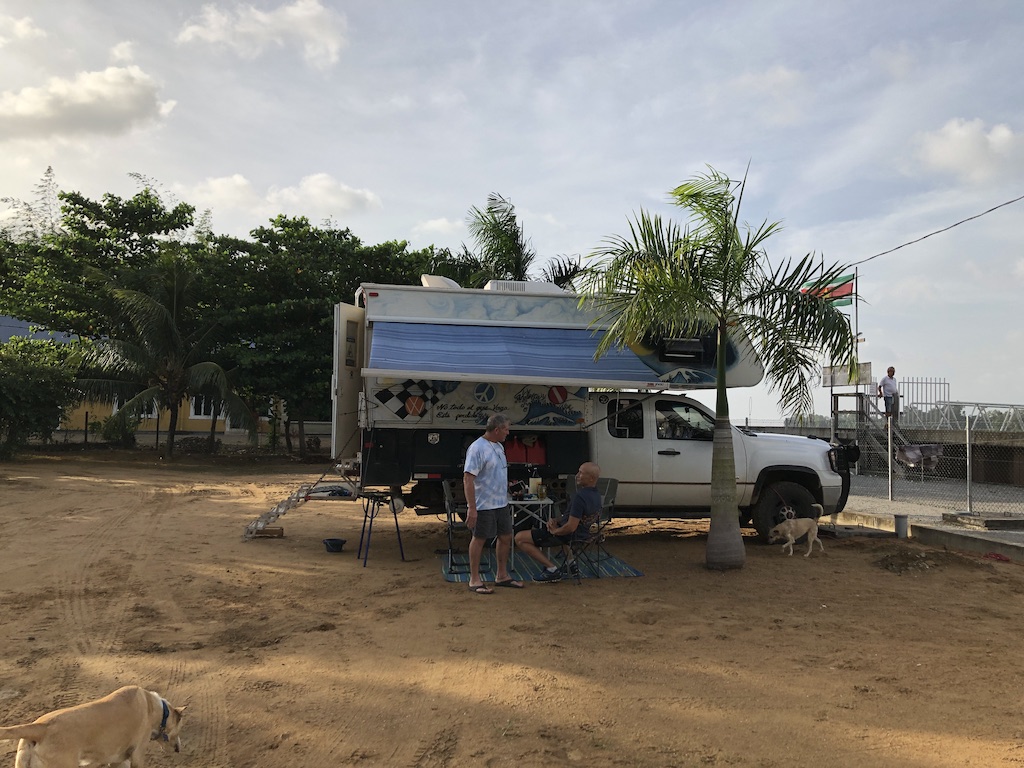
 It rained very hard for a couple of the days we were there. The dogs took the opportunity to practice water management in the parking area after the rains.
It rained very hard for a couple of the days we were there. The dogs took the opportunity to practice water management in the parking area after the rains.
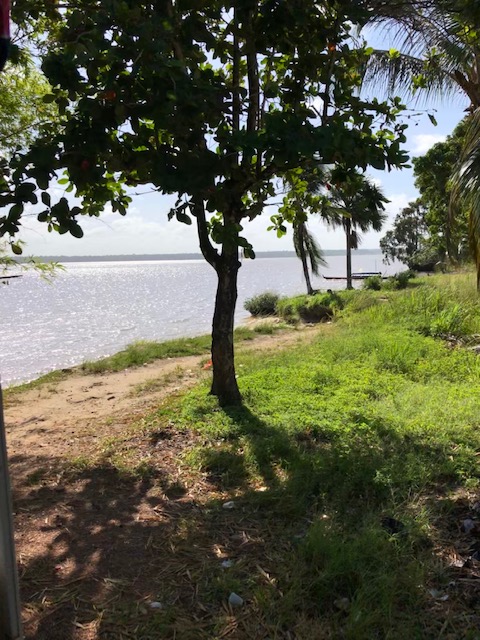
Much like the crossing into Suriname from Guyana, we had to wait for a large ferry boat to take our truck across the river/border and in to the next country.
 While we waited in the long line for our turn to board the ferry, we watched many longboats haul foot traffic and products across the river. Such is the trade at a border, products and people crossing back and forth for economic exchange. While it may be legal or illegal, it is clearly a bustling business and interesting entertainment for us during the wait.
While we waited in the long line for our turn to board the ferry, we watched many longboats haul foot traffic and products across the river. Such is the trade at a border, products and people crossing back and forth for economic exchange. While it may be legal or illegal, it is clearly a bustling business and interesting entertainment for us during the wait. 
 Finally it was our turn to drive aboard the ferry. We are taking a 20 minute boat ride to France. Are you coming with us as we learn about French Guiana?
Finally it was our turn to drive aboard the ferry. We are taking a 20 minute boat ride to France. Are you coming with us as we learn about French Guiana? 







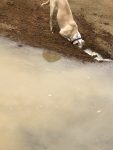


Super interesting!!
I appreciate you greatly! Thanks for your quality comments.
Amazing. Will you go there someday?
Didn’t even know this country existed. I am learning some great things from your trip.
My uncle who lived in Holland was transferred to Parimaribo back in the 70’s. Worked there probably until mid 80’s.
I love this! I read it right after waking up this morning, and it is like you were describing to me some weirdo dream you had of all these disjointed things happening — a lovely break from the boredom of the incessant seriousness and political correctness of EEUU. Oh, beam me to Suriname! 🤪